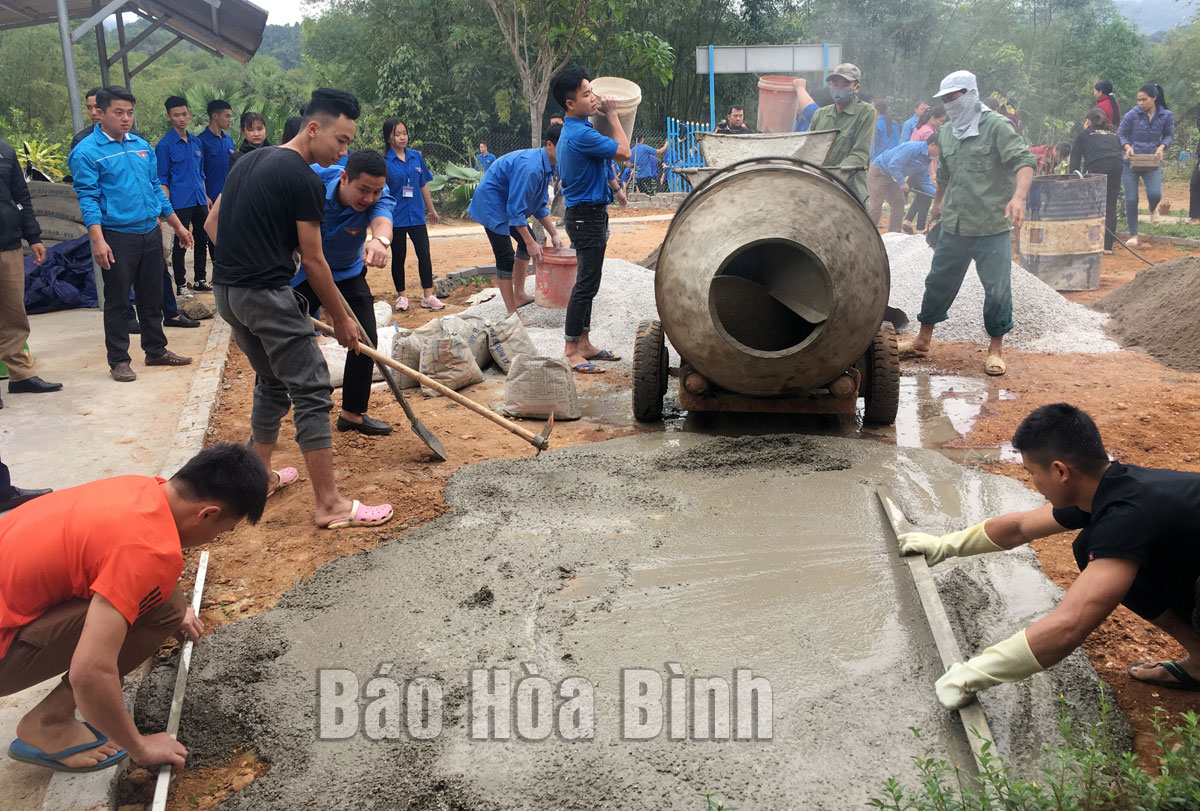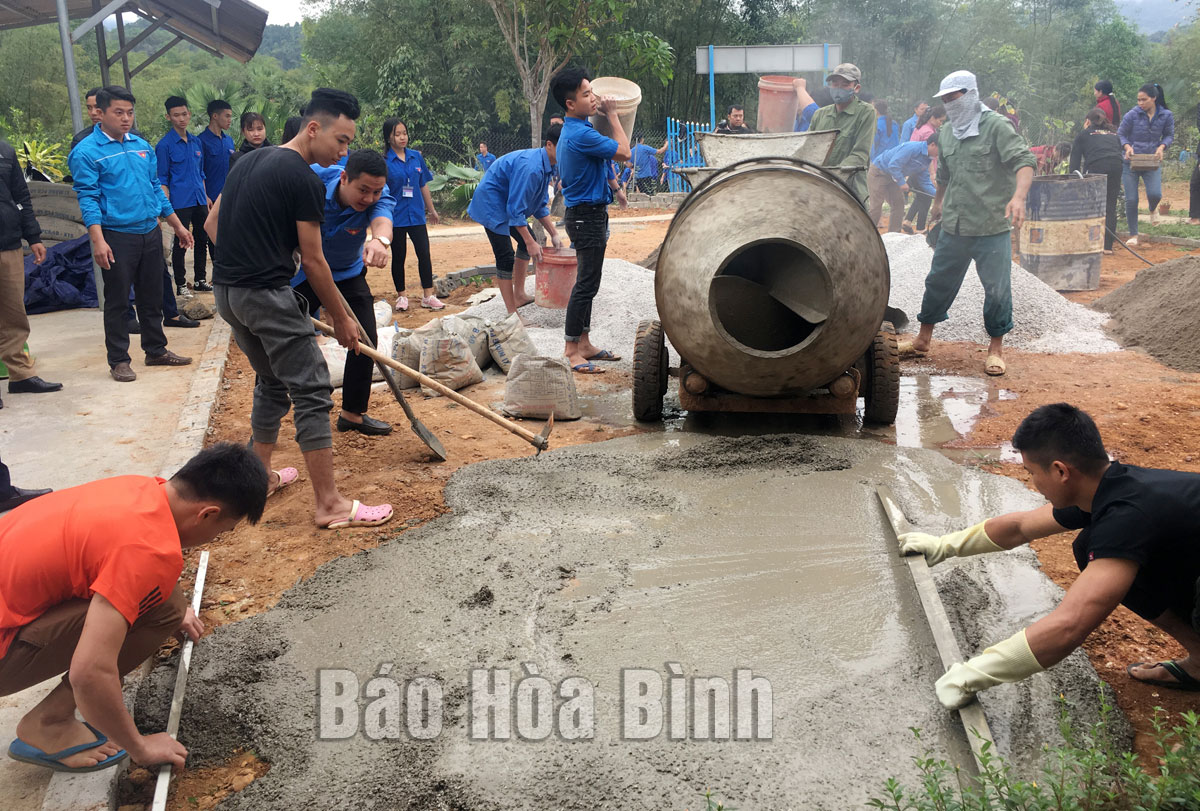
(HBO) – Mai Chau, a mountainous district with 88% of its population being ethnic minority groups, is rolling out comprehensive measures to boost the growth of the agricultural sector and rural areas, and improve the living conditions of local residents.
Locals of Buoc hamlet, Xam Khoe commune
of Mai Chau join hands in constructing rural roads, contributing to promoting
socio-economic development.
Son Thuy is a commune facing extreme difficulties in Mai Chau district.
According to Bui Van Thuy, Secretary of the communal Party Committee, in order
to speed up sustainable development, the locality has strengthened
communications to encourage local residents to switch to developing plants and
livestock with higher economic efficiency.
Bui Van Phuoc from Khan Ha hamlet of Son Thuy commune said that his family has
switched ineffective crop area to the cultivation of sweet potatoes following
VietGAP standards, which generates high values. Therefore, his family’s income
has been improved. So far, many households like Phuoc’s have linked together to
form a cooperative group with a large-scale sweet potato production.
Ha Tuan Hai, head of the Division for Ethnic Affairs of Mai Chau, said that
with the efforts of the whole political system, policies to develop production
among ethnic minority groups and localities with extreme difficulties have been
implemented effectively. As a result, the poverty rate of the locality has
fallen 3-5% each year. Over 60% of the local labourers have receive training,
while the living conditions of local residents have been greatly improved, he
said.
Commenting on the efficiency of policies to support ethnic minority
communities, Chairman of the district People’s Committee Pham Van Hoan said
that the clearest result of the policies is a positive change in the mindset
and practice of local farmers, with the development of crops and livestock
yielding higher economic effectiveness.
The economic situation of local ethnic minority communities has been improved,
and their living conditions greatly enhanced, along with their stronger
confidence in the Party and State, he noted.
Hoan said that in the coming time, effective models and policies to assist the
communities will continue to be promoted and associated with poverty reduction
efforts./.
The emulation movement "Hoa Binh joining hands to build new-style rural areas” has been widely spreading, becoming a driving force that motivates the localities to renew rural landscapes and improve the material and spiritual lives of the residents. In this movement, the people play a central role-both as the main implementers and direct beneficiaries of its outcomes.
In response to the global digital revolution, Hoa Binh Newspaper is transforming itself into a modern and multi-platform media hub, blending cutting-edge technology with a restructured newsroom and a new generation of tech-savvy journalists.
Hoa Binh province’s Association of the Elderly recently held a conference to review the project on expanding the inter-generation self-help club model until 2025.
In a move to implement Resolution No. 57-NQ/TW, issued on December 22, 2024 by the Politburo, which targets breakthroughs in science-technology development, innovation, and digital transformation, the Hoa Binh provincial Department of Health has issued a plan to roll out the "Digital Literacy for All” campaign within the local health sector.
An Nghia Commune (Lạc Sơn District) is one of the communes that achieved the tha standard of the national new rural area in 2018. Entering a new development phase, the commune is now trying to meet the criteria for the advanced new rural development. With the strong political will and the public consensus, the commune is gradually overcoming the challenges to reach this goal, aiming for the sustainable development.



